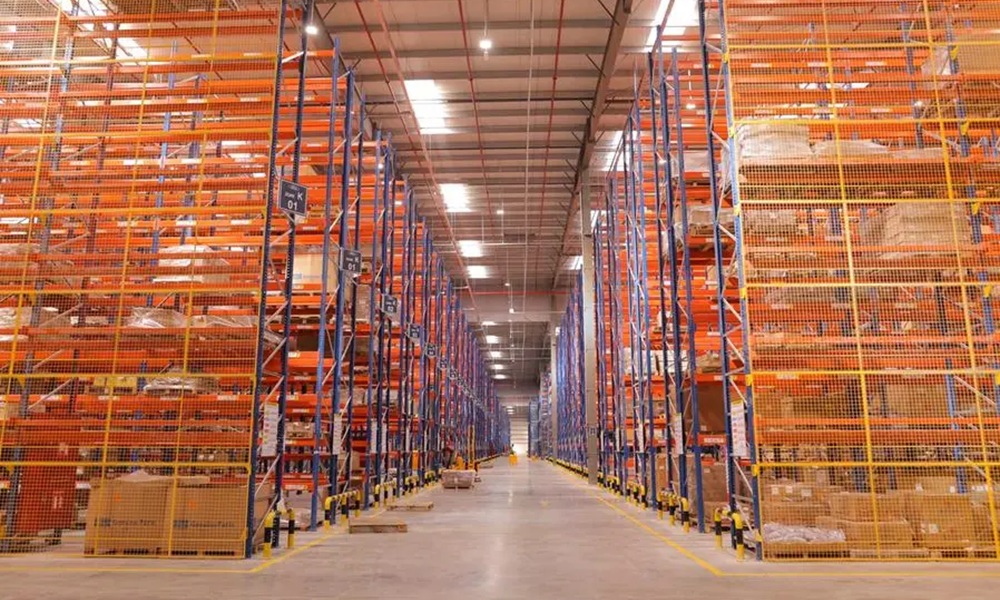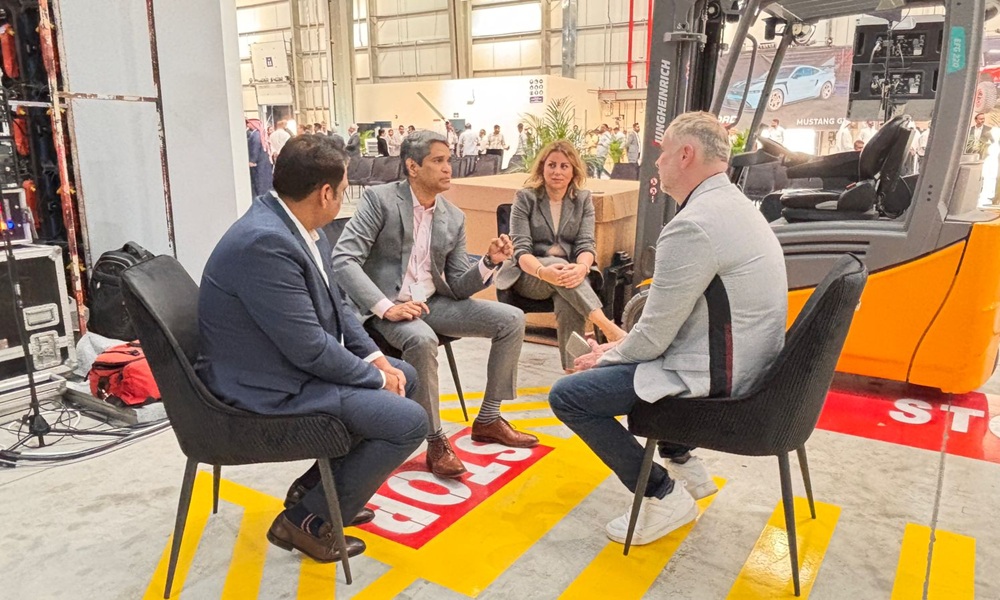Ford Middle East’s new Parts Distribution Centre (PDC) has been unveiled as a game-changer for the automotive giant’s operations in the region. Located in the UAE, the facility is not only one of the most advanced in Ford’s global network but also serves as a pivotal hub for ensuring spare parts availability across the Middle East and Sub-Saharan Africa.
With insights from Michele Detombeur, Ford’s Global Director of Parts Supply, Ravichandran Swaminathan, President of Ford Middle East Operations, and Umashankar PK, Director of Customer Service Operations, T&FME takes a closer look at how this facility based in Dubai South is a game-changer for Ford and its customers.
A Technological Marvel
The PDC sets itself apart as one of the most advanced facilities in Ford’s global network. Detombeur described the facility’s operational sophistication, highlighting its fully paperless system and AI-driven inventory management. “From the arrival of goods to their departure, every step is automated,” Detombeur said. “This minimises human error and ensures every item is optimally placed.”
The facility incorporates a robust barcode system, with every storage location uniquely coded to maintain precise inventory tracking. Detombeur explained, “The system connects the dots dynamically, identifying where goods should go and streamlining processes like replenishment and staging for outbound shipments. It ensures that everything is accounted for and errors are minimised.”
Adding to the technological marvels within the operation are thermal scanners, autonomous drones, and integrated CCTV systems. These tools work together as a virtual safety officer, monitoring personnel movements, material handling equipment, and potential hazards. “It’s like having an intelligent, tireless safety officer working around the clock,” said Detombeur.
The centre has been designed with an eye on the future, integrating the latest technologies to streamline operations and reduce errors. “This is one of 25 parts depots in our international market network, but it stands out in terms of technology, size, and scale,” explained Umashankar.
The facility houses close to 100,000 parts, which are sourced from multiple locations, including the US, China, Thailand, and South Africa. This global sourcing strategy reflects Ford’s commitment to minimising supply chain disruptions, a lesson learned during the global pandemic. “We realised we could no longer rely on a single source for products. Diversifying our supply chain has become essential,” added Swaminathan.
Ford’s new PDC has introduced advanced scanning systems, which not only enhance accuracy but also significantly reduce human error. “In older depots, manual processes could lead to mistakes. With these scanners, error rates drop drastically, boosting efficiency by as much as 20%,” Umashankar noted.
These systems ensure that parts are always in their correct locations and orders are fulfilled with precision. “If a bumper is needed for an F-150 in another market, and the local depot doesn’t have it, the system triggers an order to this PDC, and we can ship it overnight,” he explained. This level of integration is made possible by SAP’s latest technology, which underpins the centre’s operations and enables seamless coordination across Ford’s global supply chain.

One of the standout features of the PDC is its use of artificial intelligence (AI) to monitor inventory levels and prioritise workflows. “The AI monitors real-time inventory and identifies shelves running low on parts. It even tracks incoming containers to ensure critical parts are processed first,” said Umashankar.
This predictive capability allows the PDC to maintain optimal stock levels, ensuring parts are readily available when needed. While AI is already being used extensively in execution, Ford is exploring its potential for predictive planning in the near future. “Our goal is to ensure that the right part is always available at the right time,” he added.
The PDC’s advanced systems also play a crucial role in reducing downtime for vehicles, particularly in scenarios where a vehicle is off-road (VOR). Swaminathan highlighted the importance of addressing VOR situations promptly, especially for fleet operators who cannot afford delays.
“We have specific storage strategies and technology to prioritise VOR parts. The system monitors these parts closely to ensure they are always accessible. This has been a game-changer in reducing vehicle downtime,” he said. Umashankar elaborated on the broader implications, stating, “The system integrates all the way back to the production plant, enabling us to respond quickly to urgent requirements. It’s about ensuring that no customer is left waiting longer than necessary.”
The PDC also benefits Ford’s dealer network by providing them with faster access to parts. Swaminathan explained, “Dealers benefit from reduced lead times and greater reliability. Previously, long lead times were common, with some segments experiencing delays of up to six months. Now, our technology and logistics improvements have significantly shortened these timelines.” This transformation not only strengthens Ford’s relationship with its dealers but also enhances the overall customer experience. “Our ultimate goal is to deliver a seamless experience where customers and dealers feel supported at every step,” he added.
In addition to its operational efficiencies, the PDC is a cornerstone of Ford’s growth strategy in the Middle East. The facility serves as a regional hub, shipping parts across Sub-Saharan Africa and the Middle East.
“Dubai is an ideal location for this facility. It’s a global logistics hub, and this PDC allows us to support markets far beyond the UAE,” said Swaminathan. The centre’s strategic position enables Ford to meet the growing demand for spare parts in a rapidly expanding market, aligning with the company’s vision of becoming the fastest-growing automotive brand in the region.
Ford is also leveraging connected vehicle technologies to further enhance its service capabilities.
Through the FordPass app, which will soon launch in the UAE, the company plans to use predictive analytics to monitor vehicle performance and anticipate potential issues. “FordPass allows us to notify customers of potential problems before they occur. For example, if a part is likely to fail, we can alert the customer and schedule a service appointment in advance. This proactive approach not only reduces downtime but also builds customer trust,” explained Umashankar.
The new PDC is part of a broader effort by Ford to differentiate itself in a competitive market. Swaminathan pointed out that while product innovation remains crucial, customer experience is becoming an equally important factor. “Our competitors, particularly those from China, are catching up in terms of product quality. Where we aim to stand out is in the customer experience,” he said.
As Ford continues to expand its presence in the Middle East, the PDC serves as a symbol of its self-declared dedication to innovation, efficiency, and customer satisfaction. The facility is not just about logistics; it’s about creating a seamless ecosystem where every part of the supply chain works in harmony “to support our customers and partners,” concluded Swaminathan.



